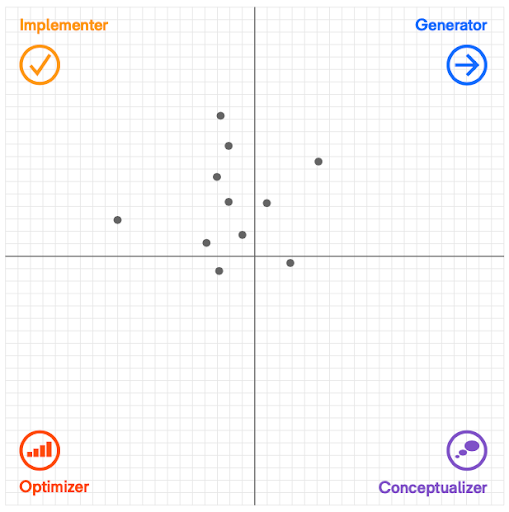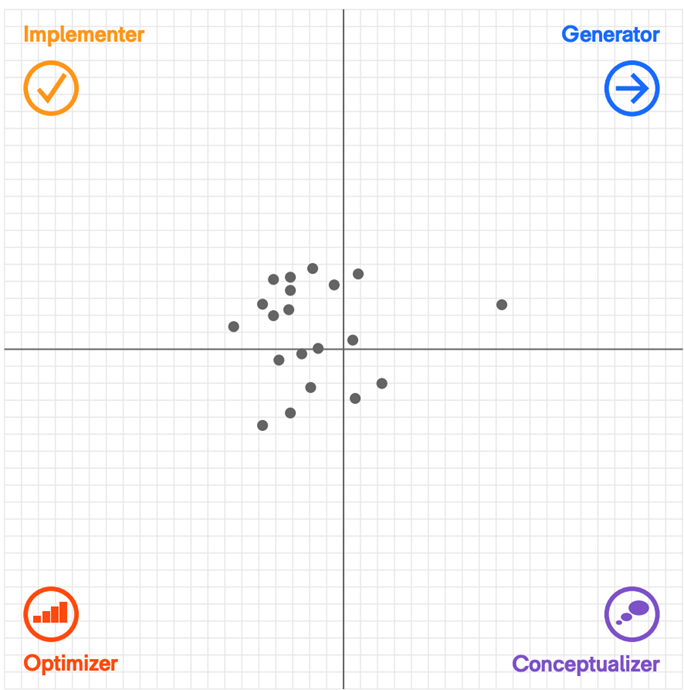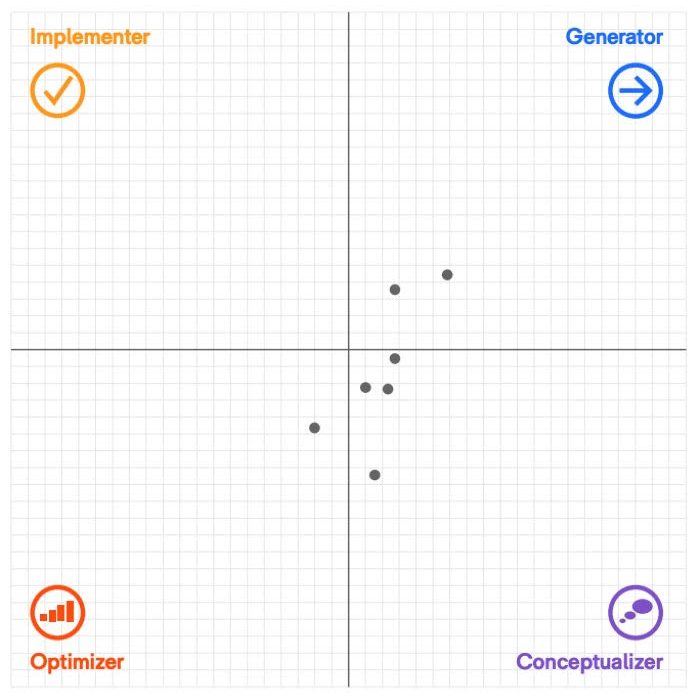Leveraging Cognitive Diversity: Training to Build Generator and Conceptualizer Innovation Styles…
What do you do when your organization jumps too quickly into solutions?
The Team
Another example from the archives involves our work with a large automotive company. This example is still relevant today. After recording losses in several consecutive business quarters, the company decided to undertake initiatives to change its operations. One of the most important initiatives was a plan to actively involve employees in improving quality, customer satisfaction, and increasing innovation. The company wished to involve managers in “managing the business” rather than just “doing my job.”
In an effort to encourage salaried employees and managers to take the initiative in identifying opportunities for improvement and tackling them creatively, the company looked to the Basadur Innovation process.
We applied the process to a challenge at a newly modernized plant responsible for a major component of the company’s new front-wheel drive automobiles. The plant was setting new records for quality and low cost, but one department struggled. Only about one-third of its output met the company’s high-quality standards, and employees had to work heavy overtime schedules to keep up with orders. The plant managers had tried several quick-fix solutions to resolve the problems, but none had worked.
Working with a cross-functional team of 15 plant managers and supervisors, we provided a half-day of training in our process, then spent two and a half days applying the process to the challenges at the plant.
During the training, the team members were asked to complete the Basadur Profile to identify their preferences for the process stages. The profiles provided the team with a very revealing insight. Of the 15 team members, eight were heavily oriented toward implementation. The other seven were heavily oriented toward optimization. None favored generation or conceptualization.
What’s missing?
The team was composed of people who preferred to jump quickly to solutions and action rather than carry out fact-finding and problem-definition. Discussion about these results led team members to identify many instances when they had mistakenly made assumptions about the plant’s problem, leading to one failed solution after another. Rather than taking time to define the problem accurately, they simply jumped from the problem into one solution after another. They had spent all their time alternating between the final two stages of the process (Optimization and Implementation), and none in the initial two stages (Generation and Conceptualization). They were using only half of the creative process.
What did they do?
These solution and action-oriented individuals agreed to spend two days generating and conceptualizing activities – gathering facts and defining problems even though the exercise was against their preferred style. The activity helped the team identify three specific problem definitions, which led to creating simple, but specific solutions that could be quickly implemented. Within several months, the plant tripled its production. They found their solutions once they employed the entire innovation process.
“You’re an innovator, you just don’t know it yet!” Learn more about the Basadur Profile and how it measures cognitive diversity to support your team in achieving innovative results.
Ready to take The Profile?







